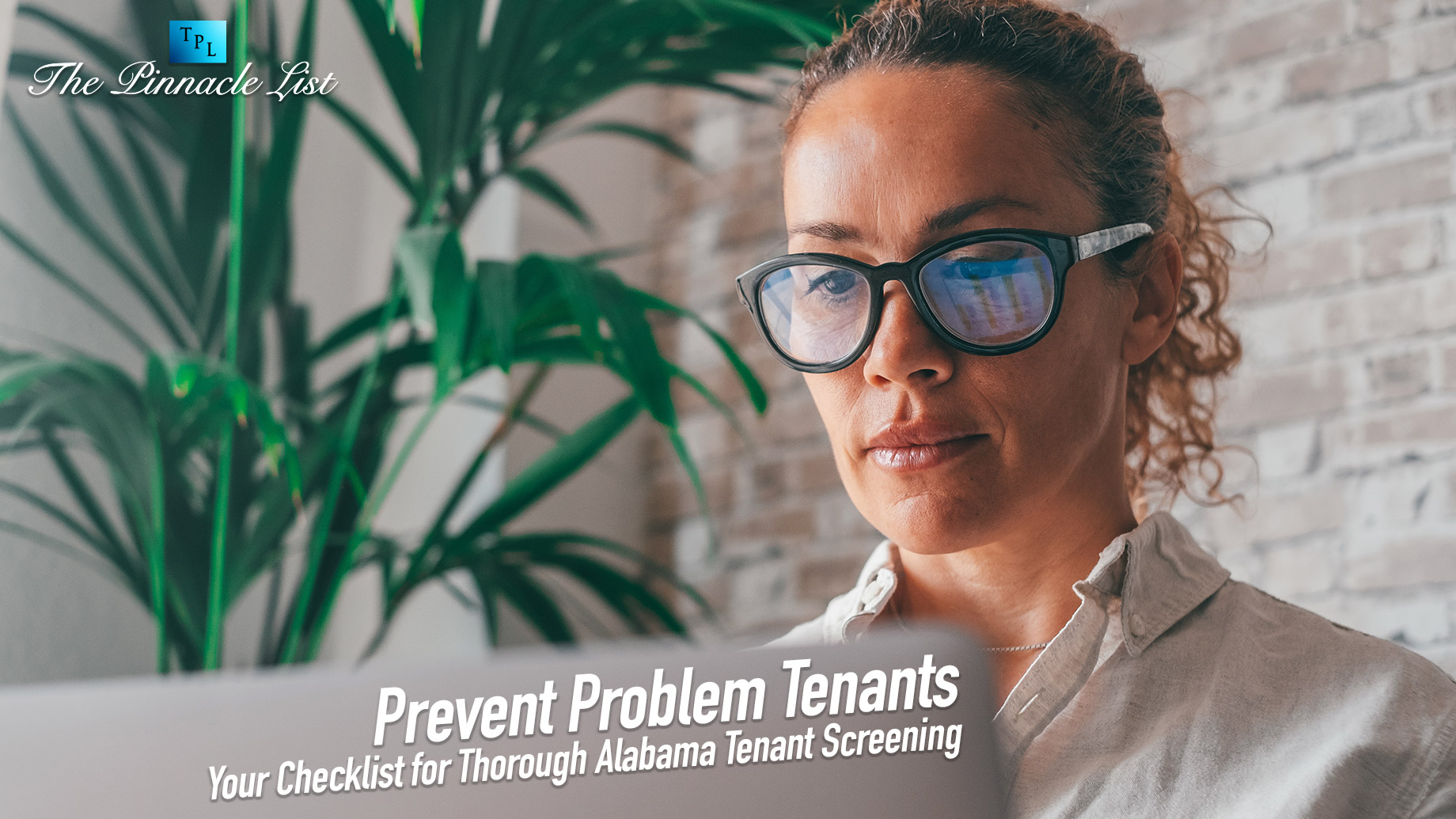
Securing reliable and trustworthy tenants is crucial for maintaining a successful rental property business in Alabama. The process of tenant screening can be daunting, but a thorough and detailed approach can save landlords from the headaches and financial losses associated with problem tenants. By implementing a comprehensive checklist, you can significantly reduce the risks and ensure that your property is in good hands. Here is your essential guide to thorough tenant screening in Alabama.
The Importance of a Detailed Application Process
The first step in tenant screening is to establish a detailed application process. This process should include a comprehensive rental application form that requires potential tenants to provide detailed information about their rental history, employment, income, and personal references. A well-structured application form helps you gather crucial data that will be used to evaluate the applicant’s suitability.
A robust application should also include a consent clause allowing you to conduct background checks. This clause is vital as it legally permits you to verify the information provided by the applicant. Ensuring that your application process is thorough sets the stage for effective tenant screening and helps you identify potential red flags early on.
Conducting Background and Credit Checks
Once you have collected the applications, the next step is to conduct thorough background and credit checks. Background checks provide insight into an applicant’s criminal history, eviction records, and any past legal issues that may affect their reliability as a tenant. In Alabama, you must comply with state laws regarding background checks and ensure that you have the applicant’s consent.
Credit checks are equally important as they reveal an applicant’s financial responsibility. By reviewing an applicant’s credit report, you can assess their ability to pay rent on time and manage their finances. Look for consistent payment history, outstanding debts, and any bankruptcies that might indicate financial instability. Both background and credit checks are critical components of the tenant screening process and help you make informed decisions.
Verifying Employment and Income
A key aspect of tenant screening is verifying the applicant’s employment and income. This step ensures that the potential tenant has a stable source of income to afford the rent. Request recent pay stubs, tax returns, or an employment verification letter to confirm their financial situation.
Contacting the applicant’s employer directly can provide additional assurance. Confirm their position, length of employment, and monthly income. This verification process helps you gauge the applicant’s job stability and ability to meet financial obligations. Ensuring that your tenant has a steady income reduces the risk of missed rent payments and financial disputes.
Checking Rental History and References
One of the most telling indicators of a prospective tenant’s suitability is their rental history. Contact previous landlords to inquire about the applicant’s behavior, reliability, and adherence to lease terms. Ask about their payment history, any reported issues or damages, and whether they would rent to the applicant again.
In addition to rental history, personal references can provide valuable insights. Speak to individuals who know the applicant well and can vouch for their character and responsibility. Personal references should ideally include friends, colleagues, or family members who can offer an unbiased perspective on the applicant’s suitability as a tenant.
Utilizing Local Resources and Assistance
When screening tenants in Alabama, it’s essential to utilize local resources and seek assistance when necessary. Hapa Homebuyers, for instance, offers valuable insights and services that can aid landlords in tenant screening. Their expertise in the local real estate market and experience with property management can provide additional layers of assurance and guidance.
Engaging with local property management companies or real estate professionals can also be beneficial. They can offer advice on best practices, share their experiences, and recommend reliable screening services. Utilizing these resources ensures that your tenant screening process is thorough and aligned with local regulations and standards.
Setting Clear Expectations and Communication
Clear communication and setting expectations from the outset are vital for maintaining a positive landlord-tenant relationship. Once you have selected a tenant, conduct a detailed orientation meeting to discuss lease terms, property rules, and maintenance responsibilities. Providing a tenant handbook that outlines key policies can also be helpful.
Ensure that the tenant understands their obligations regarding rent payments, property upkeep, and reporting issues. Open lines of communication help prevent misunderstandings and foster a cooperative relationship. Addressing concerns promptly and maintaining transparency builds trust and encourages tenants to uphold their responsibilities.
Continuous Monitoring and Evaluation
Tenant screening doesn’t end once the lease is signed. Continuous monitoring and evaluation are crucial for maintaining a trouble-free tenancy. Regular property inspections help you ensure that the tenant is complying with lease terms and maintaining the property in good condition.
Maintain records of all communications, rent payments, and any reported issues. This documentation provides a clear history of the tenancy and can be invaluable in case of disputes. By staying proactive and vigilant, you can address potential problems early and maintain a positive rental experience.
Conclusion
Thorough tenant screening is the cornerstone of successful property management in Alabama. By implementing a detailed application process, conducting comprehensive background and credit checks, verifying employment and income, and checking rental history and references, you can significantly reduce the risk of problem tenants. Utilizing local resources and maintaining clear communication further strengthens your screening process. Remember, continuous monitoring and evaluation are essential for a trouble-free tenancy. With these strategies in place, you can enjoy the benefits of reliable and responsible tenants, ensuring the long-term success of your rental property business.